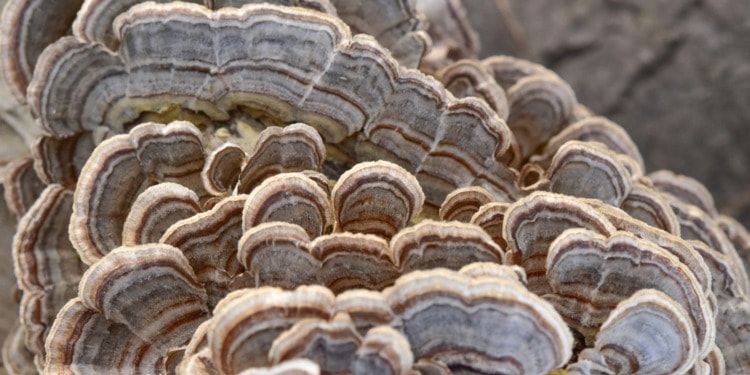Improper waste management directly threatens the world’s soil, an essential part of the earth’s ecosystem. Toxic metals and hazardous chemicals from waste alters soil chemistry, resulting in declining soil stability, health, and strength. The bioaccumulation of solid waste in soil drastically worsens plant life, groundwater systems and human health.
These problems are projected to escalate, with global waste set to increase from 2.1 billion to 3.4 billion tonnes by 2050.
Why Improving Waste Management Makes Economic Sense
At first glance, it may seem beneficial for corporations to overlook their waste, as externalized costs improve overall financial profitability. However, improving global waste management makes economic sense for most businesses because it improves operational efficiency.
Simply put, managing waste properly lets businesses spend less on removal costs. Moreover, reusing materials allows corporations to stretch their budgets, granting further investments in other aspects of the business. Tangible and realistic disposal plans create a more seamless process, allowing companies to spend less time sorting and removing materials from the premises.
Efficient waste management systems allow for the recovery of valuable materials from waste streams. Recycling metals, plastics, paper, and other materials can significantly reduce the costs associated with raw material extraction and processing. This not only saves money but also reduces the environmental impact of these processes.
Furthermore, waste-to-energy technologies enable the conversion of waste materials into electricity, heat, or fuel through processes like incineration, gasification, and anaerobic digestion. This can reduce reliance on fossil fuels, enhance energy security, and provide a more sustainable energy source, which can be economically beneficial, especially in areas with high energy costs.
“It makes economic sense to properly manage waste,” World Bank Urban Development Specialist Silpa Kaza says. “Uncollected waste and poorly disposed waste have significant health and environmental impacts. The cost of addressing these impacts is many times higher than the cost of developing and operating simple, adequate waste management systems.”
What Novobiom Can Offer
Belgian startup Novobiom attempts to ease the global waste crisis through a fungal process: mycoremediation.
Mycoremediation is a specialized form of bioremediation that uses the natural detoxifying capabilities of fungi, commonly known as mushrooms, to address difficult soil pollutants directly at the contamination site. The process involves designing and implementing tailored biological treatments for excavated polluted soil. Each remediation project begins with laboratory testing to select and optimize the best mycoremediation strategy, considering the unique challenges of each site.
The process also includes ongoing soil monitoring to ensure the effectiveness of the treatment. Mycoremediation is particularly useful when traditional biological, physical, chemical, and thermal remediation methods fall short, when the transportation costs of contaminated soil are prohibitive, or when a risk reduction initiative is required at old industrial sites and brownfields. This method offers a competitive, on-site treatment option that is less energy-intensive and disruptive compared to other technologies, making it a viable solution for tackling the most recalcitrant soil pollutants.
Related articles: How to Shift to, Grow, and Build Circular Economy | 5 Indian Sustainable Startups to Watch This Fall | Five Sustainable Startups From Bogotà | 4 Ways to Reduce Plastic Pollution | 5 Alternative Protein Startups to Watch | 9 Sustainable Startups From the Baltic Countries to Watch | Why We Need a Transformative Circular Economy | 5 Disruptive Circular Economy Startups to Watch
Startup Novobiom’s innovative approach to environmental solutions is deeply rooted in biomimicry, drawing inspiration from nature to tackle pollution and waste. Their primary focus on mycoremediation is complemented by their efforts to repurpose waste materials, such as textile waste, into bioactive compounds that have diverse applications, including in the cosmetics industry.
What’s Next For Novobiom?
In May 2024, startup Novobiom announced it had secured €2M in a seed funding round from Noshaq, Planetary Impact Ventures, Circular Innovation Fund, Ciri Ventures, and several other angel investors.
The immediate focus for Novobiom is to accelerate the development of its innovative waste management solutions. A key part of this acceleration stems from the construction of a biorefinery pilot plant. This facility is pivotal, as it will serve as a testing ground for refining and scaling up its technology for broader applications.
Moreover, startup Novobiom plans to prepare its soil remediation solutions for commercial launch. Preparing products for the commercial market is a complex process that requires meticulous planning and execution, and the new funding will help cover these critical activities.
Editor’s Note: The opinions expressed here by the authors are their own, not those of Impakter.com — Cover Photo Credit: Jason Mitrione.








